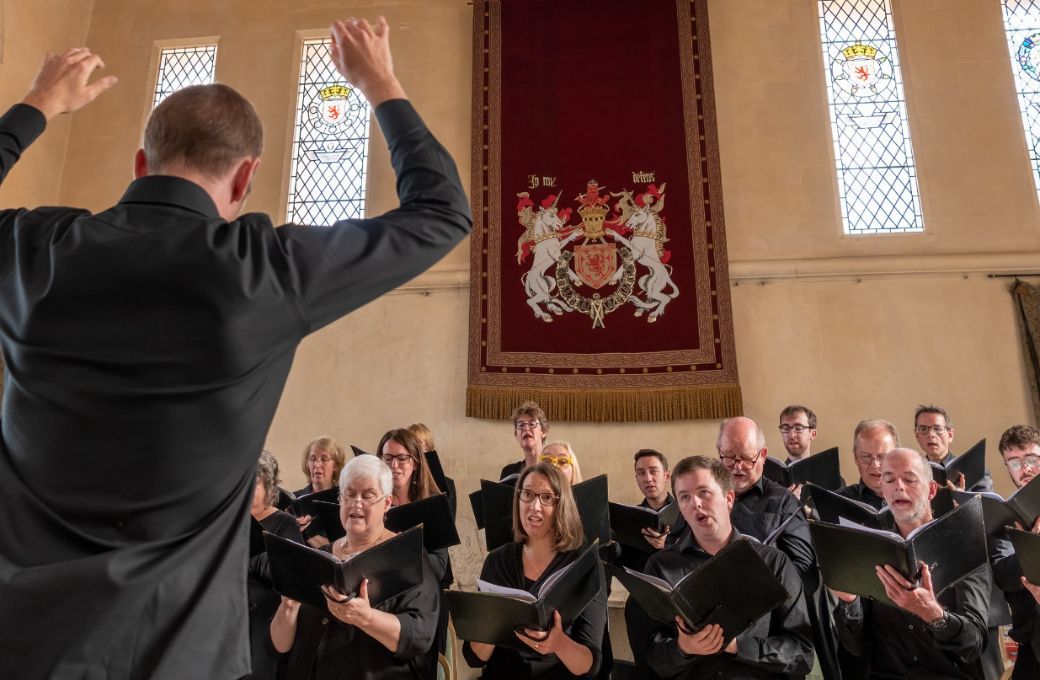The Christmas Concert from the Scottish Chamber Orchestra's choir has become a treasured annual event, an invitation to escape from the hullabaloo of the boisterous Christmas market in Princess Street Gardens into the historic beauty and stillness of Greyfriars Kirk. Chorus Director Gregory Batsleer created a thoughtful a cappella programme seasonally titled “Snow on Snow” mixing ancient and modern music and texts, peppered with meditative pieces from Philip Higham’s plangent solo cello. A wonderful brand new work surprised and delighted us by opening up new musical dimensions, taking something simple and making it magical.

Giles Swayne’s Magnificat was inspired by his immersion into Senegalese music, a joyful warm-up piece for the chorus with its open vowels, complicated syncopation, rhythms and chants. There is the annual debate on the ‘best’ version of In the Bleak Midwinter, Holst winning out here, Christina Rossetti’s words giving the event its “Snow on Snow” title in a perfectly balanced performance, Batsleer creating a lingering soft tenderness in the final verse. Warlock’s Bethlehem Down felt cosy and warm with its rich harmony and gentle embrace, the chorus on soft focus cruise control. A smart gear change into the present with Cecilia McDowall’s bright bell-like Now may we singen was full of open fourths and fifths reflecting the medieval text, bright sopranos on a solid bass making lively work of the unpredictable rhythmic changes, heading towards a shattering finish.
It's 1 o’clock in the morning, a moon shining in the darkness and your young child has woken you from your deep sleep seeking comfort and reassurance. Poet Niall Campbell took the familiar vignette, dusting it with a strange beauty in The Night Watch in a world premiere for SCO’s Associate Composer Jay Capperauld. Harmonies were close, sleepy dissonances taking time to resolve underpinned with slow drowsy jazz intervals, the wakening singers bursting into a climax as the child cries and cries. Solo voices offer comfort, the chorus offering gentle “shhh” as harmonies weaved, Batsleer shaping the piece caringly, leaving space between phrases and a wonderous lingering strangeness as the voices drifted off into the distance.
John Tavener’s The Lamb also takes a simple idea, making it out of the ordinary with a radiant chant and vivid harmonies in musical palindromes. Batsleer took it slowly, giving it space and building the dreamy intensity. As a companion piece, Philip Higham’s beautiful rendition of Chant captured Tavener’s lament in a work barely moving from thumb positions, the quiet keening melody mellow with an occasional eastern chromatic appearing. Earlier Higham performed Helen Leach’s Touch of Heaven making his cello sing with the haunting broken chords and a rich sonorous soundscape. His last piece, giving the choristers a breather, was the lovely Sarabande from Bach's Fourth Cello Suite.
Francis Poulenc’s Quatre motets pour le temps de Noël took us through the wonder of the child in the manger, shepherds and angels, the three wise men and the Christmas glory. The chorus relished the contrasts from austerity to pastoral rejoicing with the final “Hodie Christus natus est” a thrilling ear-splitting celebration. Returning to the solstice darkness, Sally Beamish's In the Stillness was beautifully controlled, the carol a setting of Katrina Shepherd’s words of a church in a snowy landscape, Batsleer getting an organic performance from his singers. Rutter’s setting of The Wexford Carol was full of wonderful choral textures, and finally the chorus encircled the audience with Eric Whitacre immersive piece Lux Aurumque, Batsleer now conducting from the middle of the kirk. The lush harmonies leaving us with the suggestion of infinite depths, darkness and wonder.


